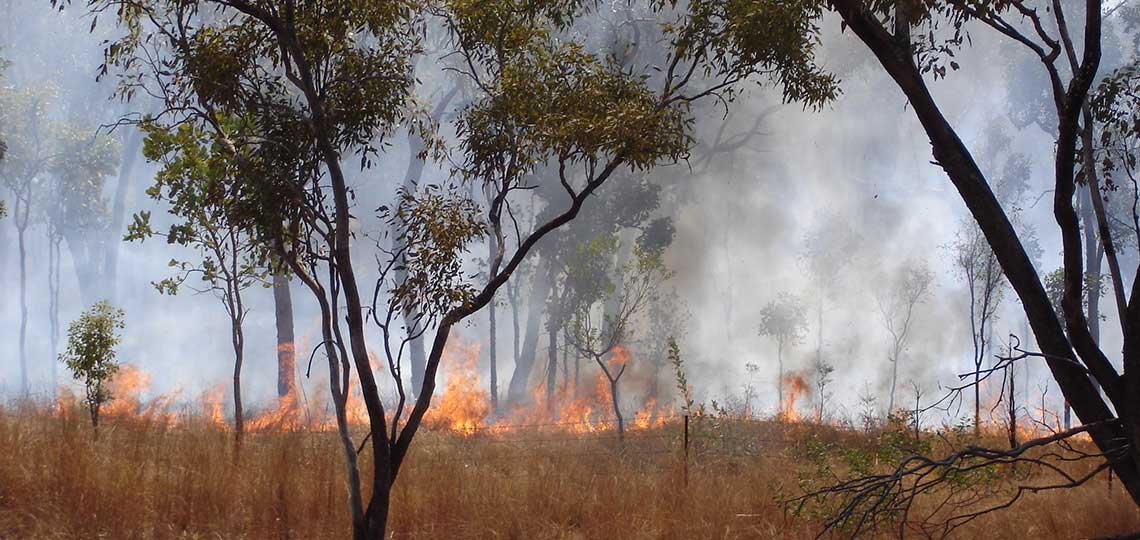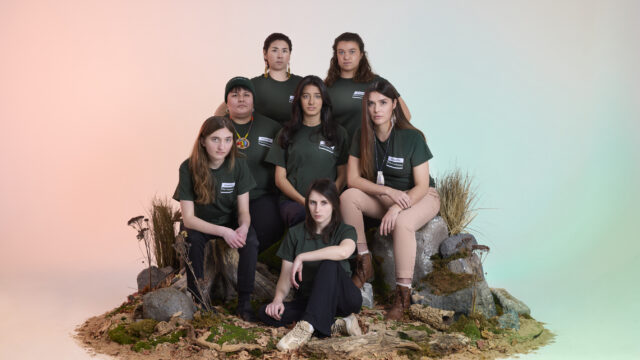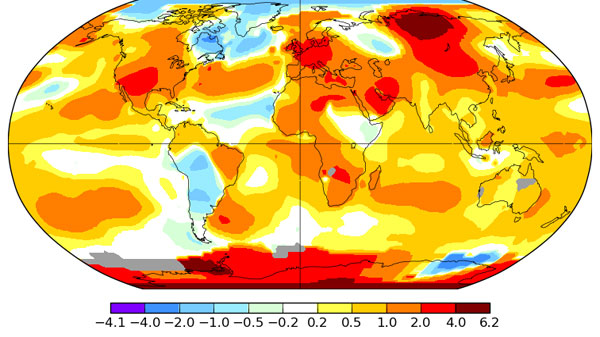It’s February 2020 and, in the words of teenage climate activist Greta Thunberg, our house is still on fire.
In the six months since Ecojustice’s last overview of the climate state of play, there’s been new science, groundbreaking new climate litigation, and a new Minister of Environment and Climate Change under a (renewed) Liberal government.
But change still isn’t happening fast enough.
This past fall, millions of people took to the streets in record-breaking global climate strikes. On Sept. 27, organizers said more than 500,000 marched in Montreal alone. That same day, more than 100,000 mobilized in Vancouver.
Just a few months later, wildfires consumed Australia. So far, the blazes have killed dozens of people, forced a state of emergency in the capital region, and put an estimated billion animals at risk.
For me, these two events sum up the state we’re in. People — often led by driven youth— are clamoring for change. Meanwhile, the climate crisis is already ripping through lives and ecosystems with devastating consequences.
As I recap the current climate state of play, I hope this blog will not only serve as a summary, but as a wake-up call: Our house is on fire, and we need to put it out now.
The science
In September, the Intergovernmental Panel on Climate Change, the same UN body authored a landmark report on warming of 1.5 degrees in 2018, released a report on climate change and the ocean.
The report found “extreme sea level events” such as hurricanes, underwater heatwaves, and extreme El Niño events, are on track to occur once every fifty years, twice as frequently as in the past. It also found loss of permafrost and marine life is already inevitable.
The Lancet, a leading medical journal, released its 2019 Countdown on health and climate change report in November.
The report identified a range of ways climate change already impacts Canadians health. In the North, it found, rapid arctic warming impacts mental health and access to traditional foods. Elsewhere, climate change exacerbates wildfire-related asthma, tick-borne diseases, flooding, droughts, and population displacement.
The upshot? Climate change is the biggest global health threat of the 21st century, The Lancet says, and tackling it could be our greatest health opportunity.
A mandate to set new climate targets
If Canada’s going to seize this century’s greatest opportunity to protect human health and the environment, it will have to ramp up its climate laws.
Fortunately, the last six months have shown that the majority of Canadians support strong climate action.
A January 2020 poll from Abacus Data suggested 75 per cent of Canadians believe “the idea of an energy transition” would be beneficial to Canada in the long term. Notably, that number includes more than half of Albertans (54 per cent).
Canadian also made their support for climate action known during October’s federal election, when more than 60 per cent of voters cast ballots for parties that put forward strong climate platforms.
The election led to a Liberal minority government and opened up new opportunities to advocate for stronger climate laws.
The Liberals campaigned on a climate platform that included a commitment to updating Canada’s emissions targets. Prime Minister Justin Trudeau echoed this intention when he issued the mandate letter for Minister of Environment and Climate Change Jonathan Wilkinson, instructing the minister to: “Lead government-wide efforts to develop a plan to set Canada on a path to achieve a prosperous net-zero emissions future by 2050.”
Science says we must halve global greenhouse gas emissions by 2030 and reach net-zero by 2050. In order to achieve this, Ecojustice says the government must pass a new climate law that:
- Sets legally-binding targets that ensure Canada — at minimum — cuts its greenhouse gas emissions in half by 2030, and reaches net-zero emissions by 2050 at the latest;
- Requires the government to develop and deliver plans to meet those targets; and
- Empowers Canadians to hold the government to account for combatting climate change.
Together with people across the country, the Ecojustice team is working to make sure elected leaders get the message. In the months after the federal election, thousands of Ecojustice supporters took action by urgently calling on party leaders to cooperate for the climate. Meanwhile, my colleague Tony Maas, Ecojustice’s director of legislative affairs, is working with Ecojustice’s allies in Ottawa to push for stronger environmental laws.
Canada’s international commitments — not to mention the science — leave only a narrow window of opportunity to set ambitious targets and get on track to meet them.
When world leaders signed onto the Paris Agreement in 2015, they committed to updating their 2030 Nationally Determined Contributions (NDCs) by 2020. This deadline is fast approaching, with the UN’s COP26 conference scheduled for this coming November.
Whether the rest of the world puts forward updated NDCs or not, it’s critical that Canada arrive at COP26 with updated emissions targets and a robust plan for reaching them.
As Kathy Bardswick, the CEO of the newly-created Canadian Institute for Climate Choices, told the National Observer, “No one knows how quickly the world is going to cut carbon pollution … Canada must make decisions that account for the uncertainty, rather than be paralyzed by it.”
On a provincial level, Ecojustice is also calling on British Columbia to set a strong example for the rest of the country by setting ambitious sectoral targets for greenhouse gas reductions.
The province tabled its Climate Accountability Amendment Act in October.
On paper, the bill is a welcome step towards greater transparency and accountability. But the real measure of progress will be whether the province can fulfil its promise to close the 25 per cent gap against between its projected emissions and its 2030 target by the end of this year — and how it breaks that target down between different sectors to ensure all parts of the economy are contributing to the drive to decarbonize.
#GenClimateAction
Urging politicians to pass new, stronger laws is one way to push for climate action. Increasingly, this fight is also playing out in the courts — an arena for which Ecojustice is uniquely equipped.
As Tessa Khan, the co-director of the Climate Litigation Network, writes, “At key moments in our history, notably in fights for racial and gender equality, courts have helped to accelerate social change.”
At Ecojustice, we believe strategic litigation can help achieve similar aims when it comes to the climate.
That’s why, at the end of November, Ecojustice launched its biggest climate case to date on behalf of seven extraordinary young people, who range in age from 12 years old to 24.
Acting under the banner #GenClimateAction, Sophia, Zoe, Shaelyn, Shelby, Alex, Madi, and Beze are taking the Doug Ford government to court for rolling back the province’s emissions targets. And they’re doing it to protect every Ontarian’s Charter rights to life, liberty, and security of the person.
Putting out the fire
A year after Greta first coined the term, our house is still on fire. In the last six months, we’ve seen new science on how the climate crisis threatens Canadians and watched wildfires tear through Australia.
But there is hope. Alongside supporters like you, Ecojustice is calling on the government to set ambitious climate targets that are in line with the latest science. And on behalf of #GenClimateAction and other Ecojustice clients, our lawyers are going to court to fight for decisions that will force governments and corporations to do better.
Together, we’re working to put out the fire and build the case for a better earth.





